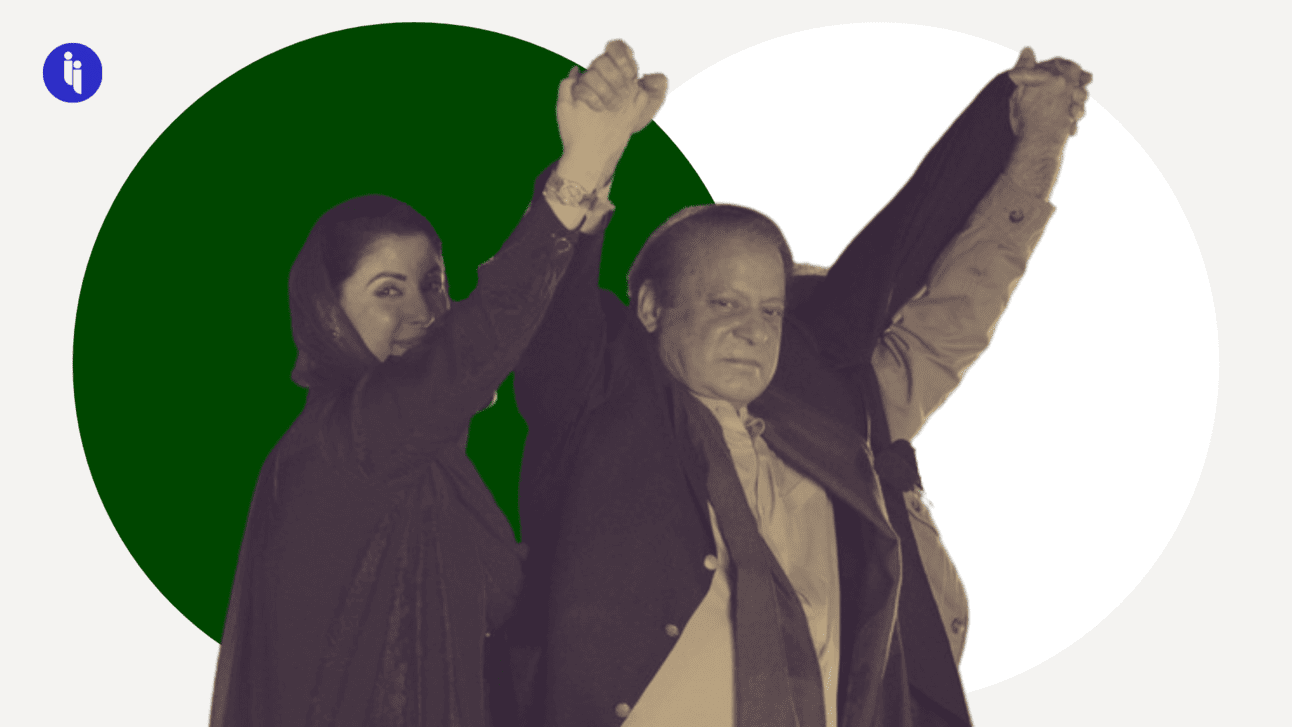Former Pakistani Prime Minister Nawaz Sharif returned to the country over the weekend after a four-year self-imposed exile in the UK.
Sharif is no ordinary former prime minister:
- He served for nine non-consecutive years (1990-93, 1997-99, and 2013-17), making him the longest serving leader in Pakistani history
- But he was ousted before finishing each one of his three terms
- He was then convicted of corruption and disqualified from office, but
- He then had his disqualification reduced to five years after his brother Shehbaz became prime minister last year.
Lawyers say Sharif may still have legal hurdles to clear before he can run in Pakistan’s election in January, but his party has been clear: the aim is for him to become prime minister a fourth time.
Stay on top of your world from inside your inbox.
Subscribe for free today and receive way much more insights.
Trusted by 129,000+ subscribers
No spam. No noise. Unsubscribe any time.
Intrigue’s take: Nothing in Pakistani politics gets done without the military’s permission, and the military is no great friend of Sharif’s (it removed him from office in 1999 and forced him into his first decade-long exile).
So why’d it let Sharif back into the country now? Because the military has a bigger problem: the party led by strident critic (and former PM / cricket star) Imran Khan remains immensely popular, despite him being in prison.
The enemy you know…
Also worth noting:
- According to a snap survey, 30% of Pakistanis believe Sharif can pull Pakistan out of its current crisis, versus 22% for Khan.
- Critics have claimed Pakistan’s decision to push its election back from November to January was to accommodate Sharif’s return.
- A Pakistani court said yesterday (Monday) that Imran Khan could face the death penalty over charges that he revealed state secrets.








